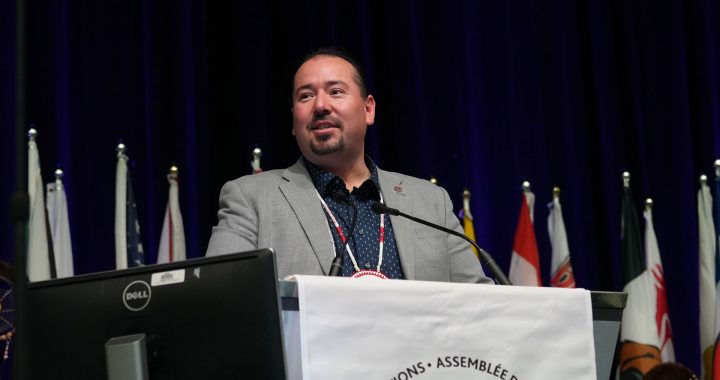The chair of the British Columbia First Nations Justice Council (BCFNJC) says a new report shows more communication and collaboration is needed to end violence against Indigenous women, girls and Two-Spirit people.
Kory Wilson said the report, Indigenous Women Justice Plan, builds on the many reports already available, including the MMIWG national inquiry’s calls for justice. It details a wide range of reforms in the criminal justice system, including access to transportation and cellular connectivity.
“Canada is a wealthy country, as well, and if you could have a cellular connection, or whatever kind of connection they have for the people who are in the space station, you can’t tell me you can’t have cellular connection across Canada, in the rural and remote communities, in particular, that Indigenous people live in,” Wilson told Nation to Nation host Annette Francis..
Wilson says the recommendations are the result of engagement with 17 indigenous communities across the province.
“We know there’s many reports out there, many you know great reports with all kinds of recommendations, but then we were also informed by those reports, but we came up with what, we hope will be a plan that will be implemented and truly actioned.”
RBC extends olive branch to people who show up annually to protest annual meeting
The Royal Bank of Canada, or RBC as it’s commonly called, has long been criticized for financing the oil and gas industry. The relationship between big oil companies and Indigenous communities or land defenders has been strained and at times violent.
Last year, oil and gas pipeline opponents gathered outside of RBC’s annual general meeting in Saskatoon, Sask.They were locked out of the meeting and were intimidated by a large police and security presence.
This week, at the RBC annual general meeting in Toronto, Indigenous groups were allowed into the morning session.
Grand Chief Stewart Phillip, president of the Union of British Columbia Indian Chiefs, compared the experience to last year’s.
“Today was somewhat different, security was evident, but it wasn’t as aggressive,” he said. But nonetheless, the tone of the meeting was very overbearing. People were only given minute, which is a ridiculously short amount of time to make statements or ask questions.
“The chair was very aggressive and smothering any question that they didn’t want to engage they would say question has been dealt with we don’t need to offer any further responses, so it was very repressive and disrespectful.”
According to Phillip, this year’s approach to include engagement with Indigenous peoples was due to public pressure.
“The measures that they are offering up don’t meet the minimum standards of the UN Declaration on the Rights of Indigenous Peoples and, by-in-large, promote in a very high, glossy public relations manner, projects that they suggest, have the full support of the Indigenous community and is a win-win for everybody and unfortunately that’s not the reality on the ground,” he said.
Phillip said large-scale resource developments like the Trans Mountain and Coastal Gaslink pipelines jeopardize the integrity of the environment and wild-life habitat. He said it’s a long-term campaign to put a stop to oil and gas production and the banks that support it.
“I believe as we move forward and the climate crisis intensifies, and there’s even greater destruction of the forests, for example, and the damages occurred to hundreds of homes, the banks will have to understand that unless they take UNDRIP seriously, we’re going to move to a very litigious reality in regards to these large-scale projects.”
Climate change and food insecurity
Dr. Treena Wasonti:io Delormier, the Canada research chair on Indigenous peoples’ nutrition and food sovereignty at McGill University in Montreal, said climate change increases food insecurity for everyone. It alters weather patterns, reduces agricultural productivity and disrupts ecosystems.
She said Indigenous communities are significantly affected.
“Often with Indigenous Peoples, we’re concerned about the food systems that we use, that traditionally or historically were tied to our territories and our land. So Indigenous peoples were able to eat very nutritious, high-quality diets from knowing how to have a balanced relationship with the animals and life around them,” she said.
According to Delormier, a key factor in elevating food insecurity is land.
“We need land that has integrity, so that animals can migrate across it, so that plants can continue to grow on it, so that ecosystems can be balanced in it. And having land is a huge issue in Canada because Indigenous people have access to very little and we need that for food security and determination.”












